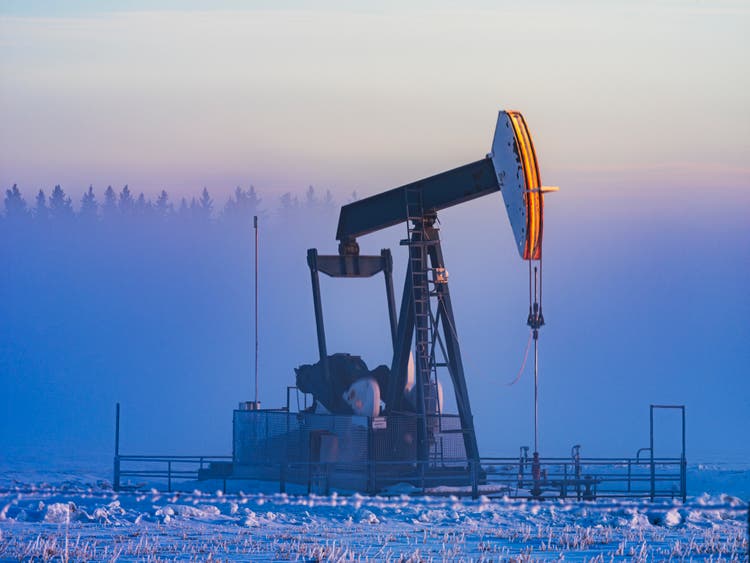chinaface
Investment Thesis
Canadian Natural Resources (NYSE:NYSE:CNQ) is an oil and natural gas production company. It’s a company that is well positioned to benefit from high oil prices. However, I argue that too high oil prices are actually detrimental to the bull case here. Below I explain why.
Next, I declare that CNQ with its crystal clear capital allocation policy of returning 50% of its free cash flow to share buybacks and 50% to the balance sheet, will get rewarded with a higher multiple in 2023.
While I charge that paying 6x this year’s free cash flow for CNQ is a compelling multiple, I believe that the bull case here lies in Q1 2023 when I estimate that CNQ’s total net debt will fall below CAD$8 billion.
Robust Balance Sheet Lends Itself to Attractive Total Yield
Let’s get some perspective. CNQ reported CAD$3.3 billion of free cash flow in Q2. This is after everything was said and done, including capex and dividends, but not acquisitions and strategic growth capital.
That means that over a 90-day period, the amount of clean free cash flow the business made was roughly equal to a quarter of the net debt it carries on its balance sheet.
Recall, CNQ finished Q2 2022 with CAD$12.4 billion of net debt. This is an important figure, one that I’ll soon return to discussing.
For now, the majority of CNQ’s capital return comes in the form of buybacks rather than dividends. And while I recognize that many investors put a premium on dividends and nearly no value on buybacks, I ask that you reconsider.
If you have a natural gas company that’s growing its topline by 10% over a couple of years, you’ll see substantial benefits from its improved operating leverage. Perhaps one sees the bottom line growing at 15% even though the topline is growing at only 10% CAGR.
And then, you add to this CAGR around 10% of annual buybacks.
Keep in mind that these are not ”tech-like buybacks”, where they announce large buybacks, but it doesn’t even come close to offsetting management’s stock-based dilution. These are commodity buybacks, where when the announcement is made, you can see the change in the total number of shares outstanding as soon as the next quarter.
In this case, when a business is growing its topline at 10%, together with strong operating leverage that sees its bottom line grow at 15%, then add to this you get a 10% increase as the number of shares reduces and you get around 25% EPS growth, even though the topline is moving at what at first glance appears to be a rather slow clip.
Obviously, the pushback here is that CNQ is a highly cyclical company. That means that the likelihood that CNQ can grow next year at 10% is rather small.
And on that front, I retort. Why shouldn’t CNQ grow by 10% y/y in 2023? Have we learned absolutely nothing in 2022? We need oil and gas companies. We are a fossil fuel-based economy. We might as well just recognize this. Everything from jet fuel, to trucking and shipping, to the plastics that we use, to the fertilizer for foods that we eat.
What’s more, I argue that investors today are not paying a large premium for this investment.
CNQ Stock Valuation — 6x Free Cash Flow
For H1 2022, CNQ’s free cash flow reached CAD$6.7 billion. While estimating future free cash flow from an oil and gas company is an impossible task, I’ve simply assumed that H2 2022’s free cash flows end up mirroring H1 2022.
This would see CNQ’s free cash flows reach CAD$13.0 billion. Even as I recognize that Q2 was a very strong period, keep in mind that the majority of Q1 was a period where oil prices were lower than they are now.
Hence, I believe that somewhere in the ballpark of CAD$13.0 billion of free cash flows seems like a reasonable approximation.
Consequently, this means that CNQ is priced at approximately 6x this year’s free cash flows. What this means in practice is that investors are inferring that between now and terminal value, there are only 6 years of this level of profits left in the company.
That somehow, after 6 years of these high earnings, somehow the demand for this company is going to tail off so that even the land and the overall assets that the company owns hold no value. Surely, that’s absurd?
Whether it’s absurd or not, the case remains that CNQ is still being priced at approximately 6x this year’s free cash flows.
The Bottom Line
I’ll be the first to acknowledge that oil companies are highly cyclical and volatile and rapidly move depending on news flow. I fully acknowledge that point of view.
However, I’m going to highlight some contra opinions. Oil prices in the $80 to $95 WTI range are actually a lot better for oil companies than higher prices.
Why? Because when oil crosses too high, there’s demand destruction, and the economy slows down, taking oil demand down with it.
But when there’s a solidly high oil price, oil companies can continue to get above-average returns, very attractive returns on invested capital, not to mention returning significant free cash flows back to investors.
Indeed, I believe that starting Q1 2023, when CNQ’s balance sheet most likely sees its net debt go below $8 billion, then we will see CNQ substantially increase its total shareholder return. It’s very likely that if CNQ’s shareholder return increases from 50% to 100% starting in Q1 2023, then we’ll see its total yield increasing to higher than the 12% investors are getting right now.
Simply put, a lot of good things happen to investors when oil prices trade between the $80 to $95 WTI range. Hence, I’m bullish on this company’s prospects.


Be the first to comment